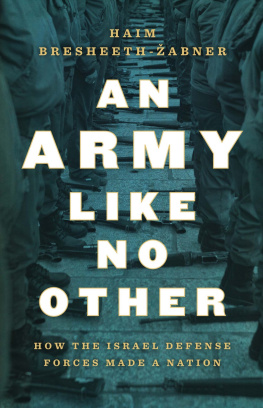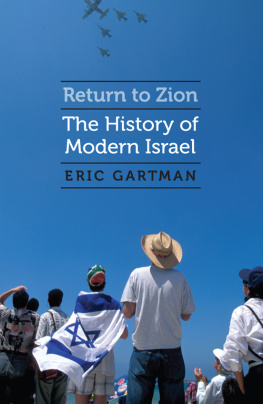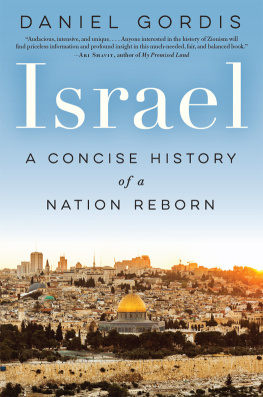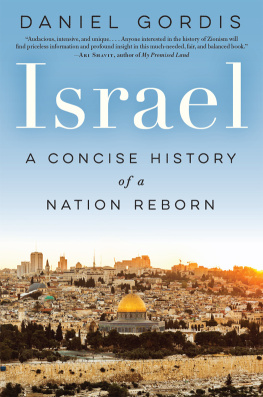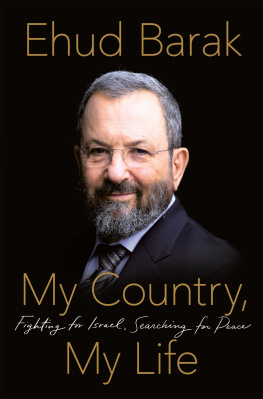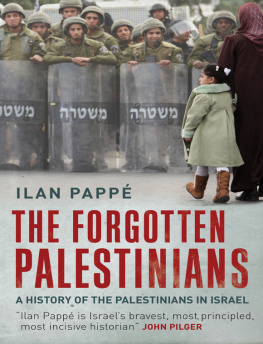Contents

An Army like No Other
An Army like No Other
How the Israel Defense
Forces Made a Nation
Haim Bresheeth-abner

First published by Verso 2020
Haim Bresheeth-abner 2020
All rights reserved
The moral rights of the author have been asserted
1 3 5 7 9 10 8 6 4 2
Verso
UK: 6 Meard Street, London W1F 0EG
US: 20 Jay Street, Suite 1010, Brooklyn, NY 11201
versobooks.com
Verso is the imprint of New Left Books
ISBN-13: 978-1-78873-784-5
ISBN-13: 978-1-78873-785-2 (UK EBK)
ISBN-13: 978-1-78873-786-9 (US EBK)
British Library Cataloguing in Publication Data
A catalogue record for this book is available from the British Library
Library of Congress Cataloging-in-Publication Data
Names: Bresheeth-Zabner, Haim, 1946 author.
Title: An Army like no other : how the Israel Defense Forces made a nation / Haim Bresheeth-Zabner.
Description: London ; New York : Verso, 2020. | Includes bibliographical references and index. | Summary: To understand Israel, you must first understand its army David Ben-Gurion, founder and first prime minister of the State of Israel, established that force in 1948 convinced that the whole nation is the army. To his mind, the Israel Defense Forces (IDF) would be an army like no othernot merely an instrument of military might but the institution that would transform a diverse, mostly immigrant population into a nation. Haim Bresheeth-Zabner, a writer, academic and Israeli peace activist, charts the evolution of the IDF from the days of the Nakba, through conflicts with Egypt, Syria, Lebanon, Jordan, and Iraq, to its ongoing assaults on the vulnerable Palestinian population, culminating in the continuing attacks on Gaza. As he shows, the IDF has been the largest, richest and most influential institution in Israels Jewish society and the Alma Mater of its social, economic, and political ruling class. Today, it is embedded in all aspects of daily life and identity in Israel, including the vast military-industrial complex that drives the national economy. An Army like No Other is an unflinching exploration of the war-driven origins of the Israeli state as well as the on-going story of Israeli militarism.Provided by publisher.
Identifiers: LCCN 2019054518 (print) | LCCN 2019054519 (ebook) | ISBN 9781788737845 (hardback) | ISBN 9781788737869 (ebk) | ISBN 9781788737852 (ebk)
Subjects: LCSH: Israel. Tseva haganah le-YiraelHistory20th Century.
Classification: LCC UA853.I8 B75 2020 (print) | LCC UA853.I8 (ebook) | DDC 355.0095694dc23
LC record available at https://lccn.loc.gov/2019054518
LC ebook record available at https://lccn.loc.gov/2019054519
Typeset in Sabon by MJ & N Gavan, Truro, Cornwall
Printed and bound by CPI Group (UK) Ltd, Croydon CR0 4YY
Dedicated to the memory of my late parents,
Arie (Leib) abner and Machla abner-Zilberberg,
and to my beloved Yosefa Loshitzky
The most frustrating thing about history, however, is that so much in it escapes language, escapes attention and memory altogether.
Edward Said
Contents
T his book would not have been possible without the tireless and inspiring work over decades of many researchers on a range of Middle Eastern subjects and related topics. I am especially indebted to the work of the following: Gilbert Achcar, Hannah Arendt, Nasser Arruri, Benjamin Beit-Hallahmi, Uri Ben-Eliezer, Sami Shalom Chetrit, Erskine Childers, Norman Finkelstein, Neve Gordon, Isabella Ginor, Adam Hanieh, Jeff Halper, Shir Hever, Ghada Karmi, Martin Kemp, Rashid Khalidi, Yizhak Laor, Ronit Lentin, Yosefa Loshitzky, Moshe Machover, Dina Matar, Nur Masalha, Benny Morris, Ilan Pappe, Uri Ram, Sara Roy, Maxime Rodinson, Yehuda Shenhav, Shlomo Sand, Tom Segev, Ella Shohat, Avi Shlaim, Shabtai Teveth, Zeev Sternhell, Jacobo Timerman, Patrick Wolfe, Nira Yuval-Davis, and Idit Zertal.
As this book was completed, I was able to see the new Hebrew volume by Uri Ben-Eliezer, dealing with many similar themes, even if from a different perspective. I regret that it was too late to refer to it in this work, though I make much use of his earlier texts.
I would especially like to thank to Avi Shlaim, who first suggested that I develop my ideas into a book after listening to a lecture I gave; to Nur Masalha, who helped me to conceive the structure of the argument; to Ronit Lentin, who has spared no effort in advising me; and most of all to my partner, Yosefa Loshitzky, who has had to live with this book and its arguments for as long as I have, and whose careful assistance, astute advice, and thoughtful support improved it and made it possible.
At Verso, I am in particular indebted to Tariq Ali, who appreciated the concept, and to Leo Hollis, whose careful work has helped make this book concise and reader-friendly; his sense of humor and great sensitivity helped to make the process enjoyable. The process of copyediting, managed by Mark Martin and the content editor Ida Audeh, has been crucialIda has used her Palestinian background to clarify and crystalize the text, and I am greatly indebted to her, for her knowledge and sensitivity.
The librarians at SOAS and Senate House have been most helpful as much of the work depended on Hebrew texts and I wish to thank them for their kind assistance.
Finally, it would be remiss of me if I failed to mention certain events that affected the production process of this volume. During the early part of the work with the Verso senior editor Leo Hollis, my desktop computer was professionally hacked, making all copies of the book files, both on the hard disc and on connected USB memory stick, unusable, as well as rendering the computer inoperable.
FortunatelyI thoughtthere was a single backup copy on my cloud server, and on superficial examination the text looked unaltered. Unbeknownst to me, a hostile and malicious modification was applied to this master file, with a view to discrediting the book after its publication. By sheer luck, during the final proofreading, I decided to check a range of footnotes, to be on the safe side. What started as a mere safety check became a full-scale examination and verification of all the footnotes. I have discovered that while I was working on the reconstitution of the text after the original hacking someone had affected a sophisticated modification of the file, without changing the main text; almost a hundred footnotes were tampered with. Wrong page numbers were implanted, and false book and journal titles, some invented, replaced the original ones. I had to check and correct more than 800 references.
This work, which took six weeks, could not have been completed without the professional support and devotion of Mark Martin and Leo Hollis at Verso, and the support of the SOAS librarians Bob Burns, who assiduously helped to identify some of the false titles and find the real ones, and Carl Newell, who assisted in finding the last of the missing sourcesfive books that were physically misplaced on the shelves or hidden behind other volumes, or even placed on the floor between shelves, making them inaccessible. To those four professionals I wish to extend my hearty thanks for enabling the timely completion of the book, which would be impossible otherwise.
A word to the wisethis is not the first instance of such hostile intervention in academic publishing, and it is not going to be the last, clearly. Extreme care is required of those publishing critical material on Israel. The informed reader shall have no difficulty in identifying the likely culpritthe one with the motive, ability and resources to effect such damage. On this occasion, the malicious efforts have failed.


